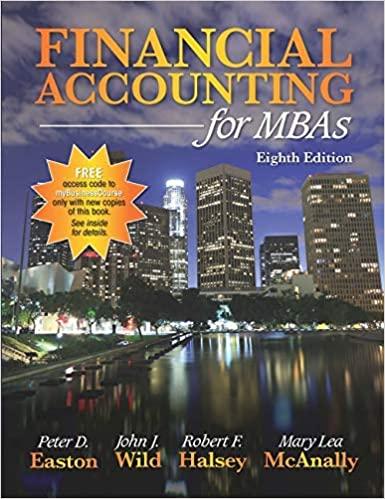Question
PROBLEM 628 Graphing; Incremental Analysis; Operating Leverage [ LO2 , LO4 , LO5 , LO6 , LO8] Angie Silva has recently opened The Sandal Shop
PROBLEM 628 Graphing; Incremental Analysis; Operating Leverage [ LO2 , LO4 , LO5 , LO6 , LO8] Angie Silva has recently opened The Sandal Shop in Brisbane, Australia, a store that specializes in fashionable sandals. Angie has just received a degree in business and she is anxious to apply the principles she has learned to her business. In time, she hopes to open a chain of sandal shops. As a fi rst step, she has prepared the following analysis for her new store: Required: 1. How many pairs of sandals must be sold each year to break even? What does this represent in total sales dollars? 2. Prepare a CVP graph or a profi t graph for the store from zero pairs up to 4,000 pairs of sandals sold each year. Indicate the break-even point on your graph. 3. Angie has decided that she must earn at least $18,000 the fi rst year to justify her time and effort. How many pairs of sandals must be sold to reach this target profi t? 4. Angie now has two salespersons working in the storeone full time and one part time. It will cost her an additional $8,000 per year to convert the part-time position to a full-time position. Angie believes that the change would bring in an additional $25,000 in sales each year. Should she convert the position? Use the incremental approach. (Do not prepare an income statement.) 5. Refer to the original data. During the fi rst year, the store sold only 3,000 pairs of sandals and reported the following operating results: Sales (3,000 pairs) . . . . . . . . . . . . . . . . . . . . $120,000 Variable expenses . . . . . . . . . . . . . . . . . . . . . 48,000 Contribution margin . . . . . . . . . . . . . . . . . . . . 72,000 Fixed expenses . . . . . . . . . . . . . . . . . . . . . . . 60,000 Net operating income . . . . . . . . . . . . . . . . . . $ 12,000 Sales price per pair of sandals . . . . . . . . . . . $40 Variable expenses per pair of sandals. . . . . . 16 Contribution margin per pair of sandals. . . . . $24 Fixed expenses per year: Building rental . . . . . . . . . . . . . . . . . . . . . . $15,000 Equipment depreciation . . . . . . . . . . . . . . . 7,000 Selling . . . . . . . . . . . . . . . . . . . . . . . . . . . . 20,000 Administrative . . . . . . . . . . . . . . . . . . . . . . 18,000 Total fi xed expenses . . . . . . . . . . . . . . . . . . . $60,000
Required: 1. How many pairs of sandals must be sold each year to break even? What does this represent in total sales dollars? 2. Prepare a CVP graph or a profi t graph for the store from zero pairs up to 4,000 pairs of sandals sold each year. Indicate the break-even point on your graph. 3. Angie has decided that she must earn at least $18,000 the fi rst year to justify her time and effort. How many pairs of sandals must be sold to reach this target profi t? 4. Angie now has two salespersons working in the storeone full time and one part time. It will cost her an additional $8,000 per year to convert the part-time position to a full-time position. Angie believes that the change would bring in an additional $25,000 in sales each year. Should she convert the position? Use the incremental approach. (Do not prepare an income statement.)
Step by Step Solution
There are 3 Steps involved in it
Step: 1

Get Instant Access to Expert-Tailored Solutions
See step-by-step solutions with expert insights and AI powered tools for academic success
Step: 2

Step: 3

Ace Your Homework with AI
Get the answers you need in no time with our AI-driven, step-by-step assistance
Get Started


